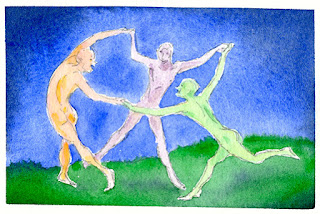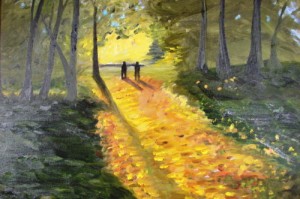Trinity (B) + The cosmic dance + 5.30.21

(https://frtimardouin.com/2018/05/24/trinity-the-dancing)/ M. Campbell-Langdell All Saints, Oxnard (Isaiah 6:1–8; Ps. 29; Romans 8:12–17; St John 3:1–17) “When we cry, "Abba! Father!" it is that very Spirit bearing witness with our spirit that we are children of God, and if children, then heirs, heirs of God and joint heirs with Christ.” Apparently, in the ancient Roman world, people had adoption fantasies. Instead of dreaming that they would win the lottery, the poorer classes would dream that someone from the senatorial class would adopt them. [1] They would take them out of their dreary existence and lift them up to a life of ease. As with most fantasies, this was loosely based on reality. Namely, women could not inherit and as such if a man did not have a male heir and wanted his property to be passed on to someone (one hopes someone who would care for the non-inheriting women also) he would need to adopt someone. And there were many ancient stories about t



